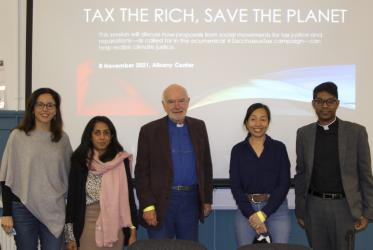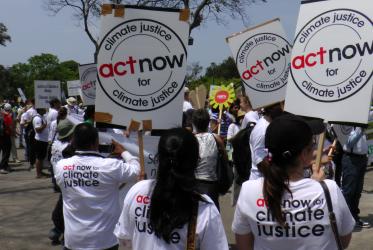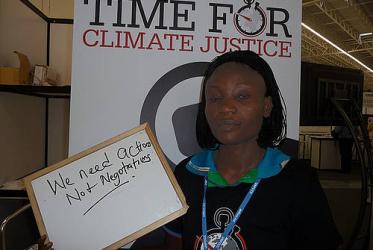Displaying 1 - 20 of 27
WCC Eco-School encourages youth to become eco-ambassadors
08 November 2018
G20 summit: call to pray for peace in Hamburg
07 July 2017
Churches' “prophetic voice” will be busy in 2015
18 June 2015
Churches engage in development dialogue on Africa
06 March 2013
Ecumenical journal analyses greed in global economics
27 October 2011
WCC Executive Committee in Ethiopia exposed to famine situation
13 September 2011
Timid hope at end of climate negotiations in Cancun
13 December 2010














